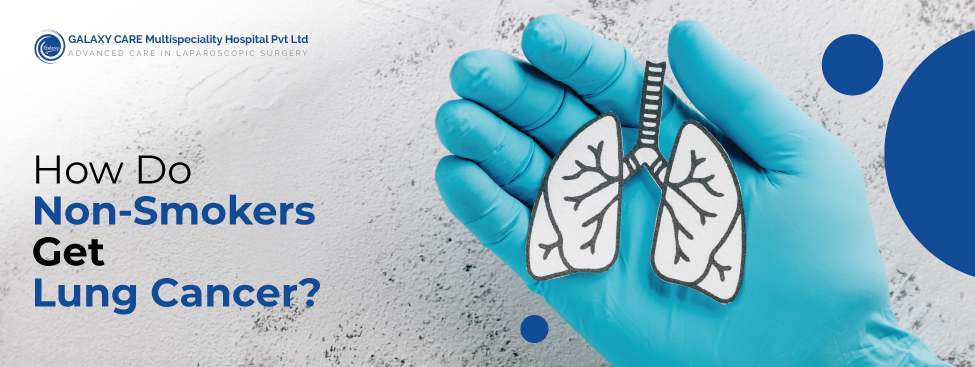
How Do Non-Smokers Get Lung Cancer?
When most people hear the term “lung cancer,” the immediate assumption is that it’s caused by smoking. It’s a common belief, and for a long time, it held true. However, what’s becoming increasingly clear is that lung cancer can and does affect people who have never smoked at all. In fact, the number of non-smokers being diagnosed with lung cancer is steadily rising. This can come as a shock—not only to those diagnosed but also to their families, especially when the individual has always lived a smoke-free lifestyle. You might even be one of those people who have wondered, “How is this possible?” or perhaps you’re concerned about a loved one who has never gone near cigarettes.
The truth is, lung cancer isn’t only a smoker’s disease, and that shift in understanding is crucial. Non-smokers are being diagnosed more often than we once realized, and the reasons can be complex and varied. While this can feel unsettling, awareness is the first step toward protection. Understanding that non-smokers are also at risk helps us stay alert to symptoms, take preventive health checkups seriously, and encourage timely medical consultation from lung cancer specialists. Let’s take a closer look at how and why this is happening!
Understanding Lung Cancer Beyond Smoking
Lung cancer develops when cells in the lung grow uncontrollably and form a tumor. In India, a surprisingly large portion of lung cancer cases occur in non-smokers, with some studies indicating that they make up nearly 40–50% of all diagnosed cases. For decades, smoking cigarettes has been considered the number one cause of lung cancer, and rightly so—it’s responsible for about 50 to 60% of all cases. But what about the remaining 40%? That’s a significant number, and these are individuals who either never smoked or haven’t touched a cigarette in many years. Scientists and doctors have discovered various reasons that non-smokers may still develop lung cancer, ranging from environmental factors to genetic predispositions.
Exposure to Secondhand Smoke
One of the most well-known risks for lung cancer in non-smokers is continued exposure to secondhand or passive smoke. Living or working close to someone who smokes means you’re still breathing in hazardous chemicals—over 7,000, in fact. Even short-term exposure can cause harm to the cells lining your lungs, while long-term exposure dramatically increases cancer risk. Especially in places where families live in multi-generational homes or work in closed environments, this indirect contact with tobacco smoke cannot be underestimated.
Exposure to Radon Gas
Not everyone knows about radon, but it’s a major cause of lung cancer for non-smokers worldwide. Radon is a naturally occurring radioactive gas that’s present in soil and rock. You can’t see, smell, or taste it, but it can seep into homes through cracks in the walls or floors, building up over time—especially in basements or lower floors. Long-term inhalation exposes your lung cells to ongoing radiation, which can cause mutations that lead to cancer. Unfortunately, many people only become aware of radon’s dangers after someone in their community is diagnosed. Tests are available, and mitigation systems can dramatically reduce risk, but awareness is key.
Air Pollution and Carcinogens
The air we breathe has a direct impact on our lung health. Urban environments, especially in and around major cities, can expose us to elevated levels of air pollution, including particles that come from cars, buses, factories, and even stubble burning in rural areas. These tiny particles and chemicals aren’t just irritants—they can also be carcinogenic, embedding themselves deep in the lungs and slowly causing damage over the years. In India, where industrial and vehicular pollution can be high, this is an important public health concern.
Occupational Hazards and Workplace Exposure
Certain job environments present higher risks for lung cancer in non-smokers. People working in construction, mining, manufacturing, or even older buildings may breathe in hazardous substances like asbestos, silica dust, beryllium, or diesel exhaust. Without proper protections and long-term monitoring, constant exposure at work becomes a silent threat—even for those who never light up. Many regulations have improved workplace safety, but not all industries have adequate controls in place, making awareness and regular health checks vital.
Genetic Predisposition and Family History
Another factor that contributes to lung cancer in non-smokers is genetics. Sometimes, certain gene mutations inherited from parents or occurring spontaneously can set the stage for abnormal cell growth in the lungs. If your close family members have a history of lung cancer (particularly if they never smoked), your risk may be slightly higher. Recent advances in genetic testing and personalized medicine offer better detection and treatment options, but knowing your family’s medical history remains as important as ever.
Infections and Lung Diseases
Certain chronic lung infections may increase the risk of developing lung cancer. For instance, a previous tuberculosis infection can cause lung scarring, which in turn might lead to abnormal cell changes later on. Other chronic inflammatory conditions and repeated infections may make lung tissue more vulnerable to cancerous growths, highlighting the importance of timely treatment and follow-up for any ongoing respiratory illness.
Recognising Symptoms Early
Lung cancer can often go unnoticed in non-smokers, as its symptoms tend to be subtle and easily mistaken for common respiratory issues. This makes early detection more difficult and can lead to delayed diagnosis. Being aware of the signs and taking them seriously is key to timely treatment.
Here are some symptoms to watch out for:
- Persistent cough that doesn’t go away
- Coughing up blood or rust-colored sputum
- Unexplained weight loss or loss of appetite
- Shortness of breath or difficulty breathing
- Frequent chest infections like bronchitis or pneumonia
- Ongoing chest or shoulder pain
Since non-smokers may not see themselves at risk, symptoms are often overlooked until the cancer has progressed. That’s why regular checkups and open discussions with your lung cancer specialist are so important—especially if you have a family history, environmental exposure, or any persistent symptoms. Early detection can make a real difference.
Consult a Lung Cancer Specialist in Pune
Lung cancer in non-smokers is a growing reality that deserves both greater awareness and deep compassion. While the causes can vary—from environmental pollutants and genetic factors to secondhand smoke—the need for timely detection and expert, patient-focused care remains constant.
Symptoms can be subtle and easily missed, which is why regular screenings and proactive health checkups are absolutely vital, even if you’ve never smoked. Early diagnosis can dramatically improve outcomes, giving patients more treatment options and a better quality of life.
If you or someone you care about is facing a lung cancer diagnosis—or even just feeling unsure about symptoms or risks—don’t wait. Seek the best care possible. At Galaxy Care Hospital, you’ll find a highly experienced lung cancer specialist in Pune who provides advanced treatment options tailored to your individual needs.
Your health matters. The earlier you act, the stronger your chances of reclaiming it. Let compassionate, expert care guide your journey.


